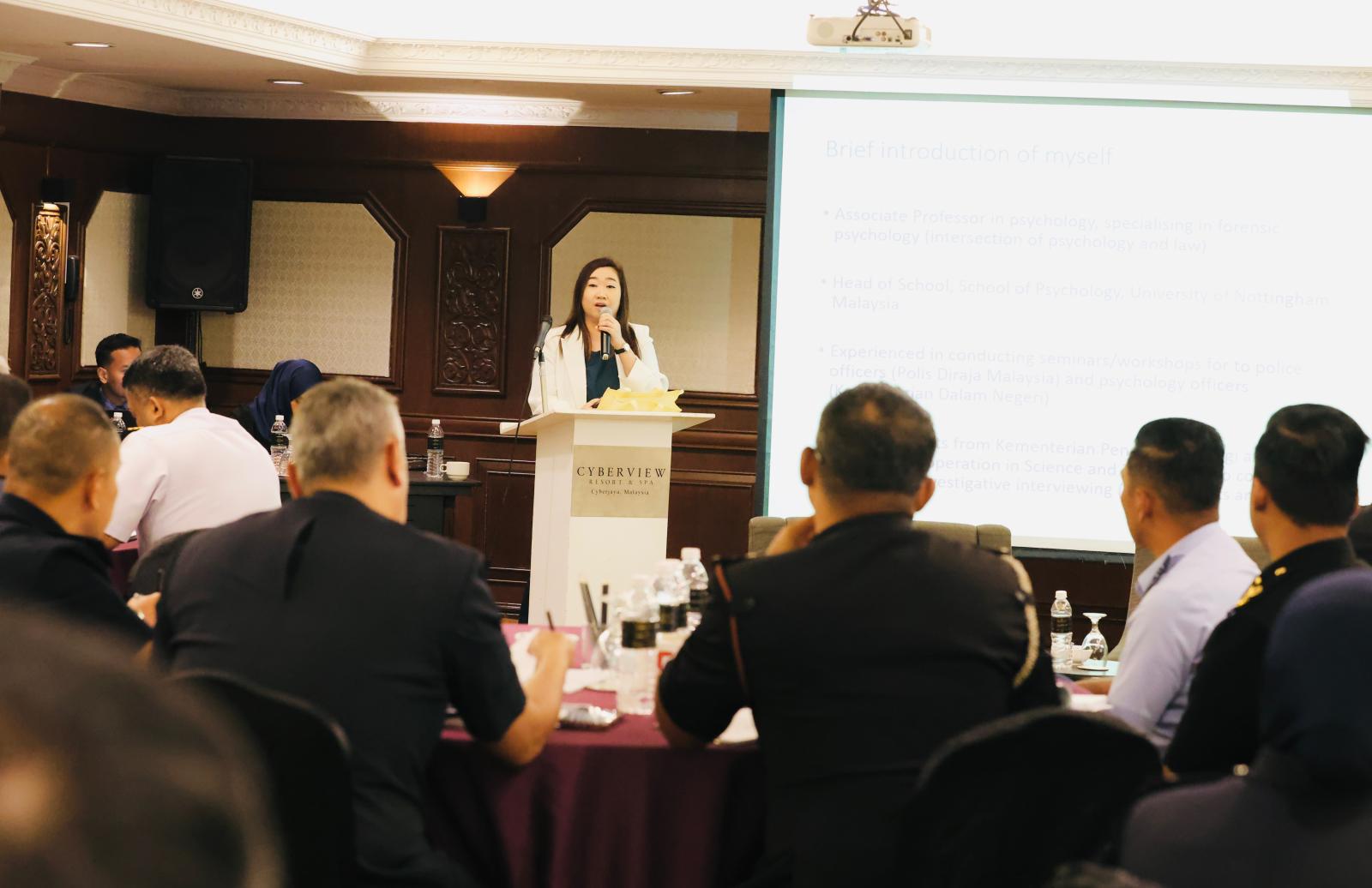
In this blog, Kai Li Chung, Associate Professor at the School of Psychology, University of Nottingham Malaysia, explores why Malaysia should move away from coercive interrogation methods and adopt rapport-based interviewing practices grounded in human rights and scientific evidence.
*******
Coercive interrogation methods are harmful and unreliable
Dialogue- or rapport-based interviewing is a more effective and ethical alternative
Systemic and cultural barriers may hinder reform, especially in Malaysia
Traditionally, police officers around the world have relied on coercive techniques such as threats, intimidation, deception, and even physical violence when questioning crime suspects. These suspect interviews or ‘interrogations’ are accusatorial in nature and are conducted with the underlying assumption that the suspect is guilty.
Presuming a suspect’s guilt from the outset can be particularly problematic, as it often leads to confirmation bias. Investigators who are convinced of a suspect’s guilt may – sometimes – unintentionally steer the interview in ways that support their initial assumptions about how the crime occurred, while overlooking or dismissing evidence that contradicts those beliefs. Such bias heightens the risk of false confessions, where individuals admit to crimes they did not actually commit. These confessions can be driven by a desire to escape the situation, confusion, or a mistaken belief that cooperation will lead to leniency.
To understand the effects of confirmation bias in the context of suspect interviews, consider a classic study by Saul Kassin and colleagues in 2003. In this experiment, student participants played the role of suspects – some actually committed a mock theft (stole $100 in a room) while others performed an innocent act (simply knocking on the door of a room). A separate group of students acted as interrogators, but with a twist: prior to the interviews, they were led to believe that either the majority of suspects were guilty, or the majority were innocent.
What happened next was telling. Interrogators who believed they were mostly dealing with guilty suspects pushed harder for confession; they asked more guilt-presumptive questions and even used more psychologically manipulative tactics. The bias didn’t stop there. Neutral observers who listened to the recorded interviews perceived the suspects in the guilty expectation condition as more defensive and guilty. In other words, the belief in a suspect’s guilt did not just shape how the interview was conducted – it influenced how the suspect behaved and how others perceived them.
Work from Shane O’Mara, author of Why Torture Doesn’t Work: The Neuroscience of Interrogation, presents a science-based argument against the use of torture in investigative or intelligence-gathering settings. Under intense stress, fatigue, pain, or fear, our brain’s ability to function properly is disrupted. As a result, individuals may struggle to recall accurate information or even fill their memory gaps with fabricated or distorted details, making any information obtained through torture highly unreliable.
Dialogue- or rapport-based interviewing has gained prominence as a humane and scientifically grounded alternative to traditional interrogation methods. The Principles on Effective Interviewing for Investigations and Information Gathering, also known as the ‘Méndez Principles’, were born out of this growing recognition that coercive methods do more harm than good. The Méndez Principles emphasise the importance of respect, fairness, transparency, and accountability in all forms of information gathering, whether the context is law enforcement, military, or intelligence operations.
What makes rapport-based techniques effective? First, they are grounded in empathy and active listening. When interviewers demonstrate an understanding of interviewee’s perspective, it reduces the interviewee’s sense of threat and the risk of psychological reactance – a defensive response where the interviewee may resist, shut down or push back against perceived threat to their freedom. By fostering a sense of autonomy and respect, interviewees are more likely to reciprocate with openness and honesty, increasing the likelihood of more accurate sharing of information.
Using rapport-based methods support the principles of procedural justice, which allows people view the investigative process as more legitimate and trustworthy. In contrast, the use of force or torture not only undermines the integrity of the legal system but also erodes public trust in law enforcement institutions. To ensure fairness and accountability, every aspect of the criminal justice system should be rooted in human rights principles.
One of the key obstacles to preventing coercive treatment in investigative interviewing is the widespread belief among some law enforcement personnel that suspects would almost always confess or cooperate in response to police pressure, be it through physical force or psychological manipulation. This misconception continues to justify the use of harsh methods, despite growing evidence to the contrary.
In the case of Malaysia, an additional barrier lies in the lack of recognition that human rights should be fundamental for all. As of July 2024, Malaysia is one of the remaining minority state members that have not acceded to the United Nations Convention against Torture and Other Cruel, Inhuman or Degrading Treatment or Punishment (UNCAT) and commit to becoming a torture-free nation, even though 175 countries worldwide have committed to its standards. A significant challenge to Malaysia’s accession is its current criminal law framework, which includes provisions for corporal and capital punishment, such as whipping and death by hanging. Despite international advocacy highlighting the long-term harms of corporal and capital punishment, these practices are still widely accepted in Malaysia, legally and culturally, further complicating efforts to eliminate coercive methods in the justice system.
To bring about real change, there needs to be a shift in public mindset that encourages policymakers to act. At the same time, at an institutional level, countries like Malaysia must move toward a policing approach that respects human rights. Academics and practitioners alike should work together through research, advocacy, and capacity-building to promote effective, ethical investigative interviewing practices that protect the dignity and rights of all individuals.
